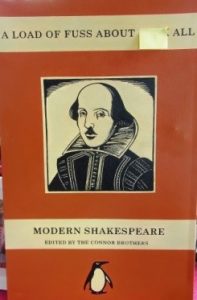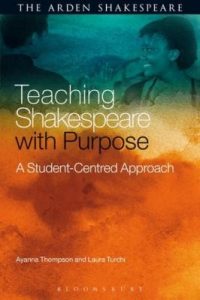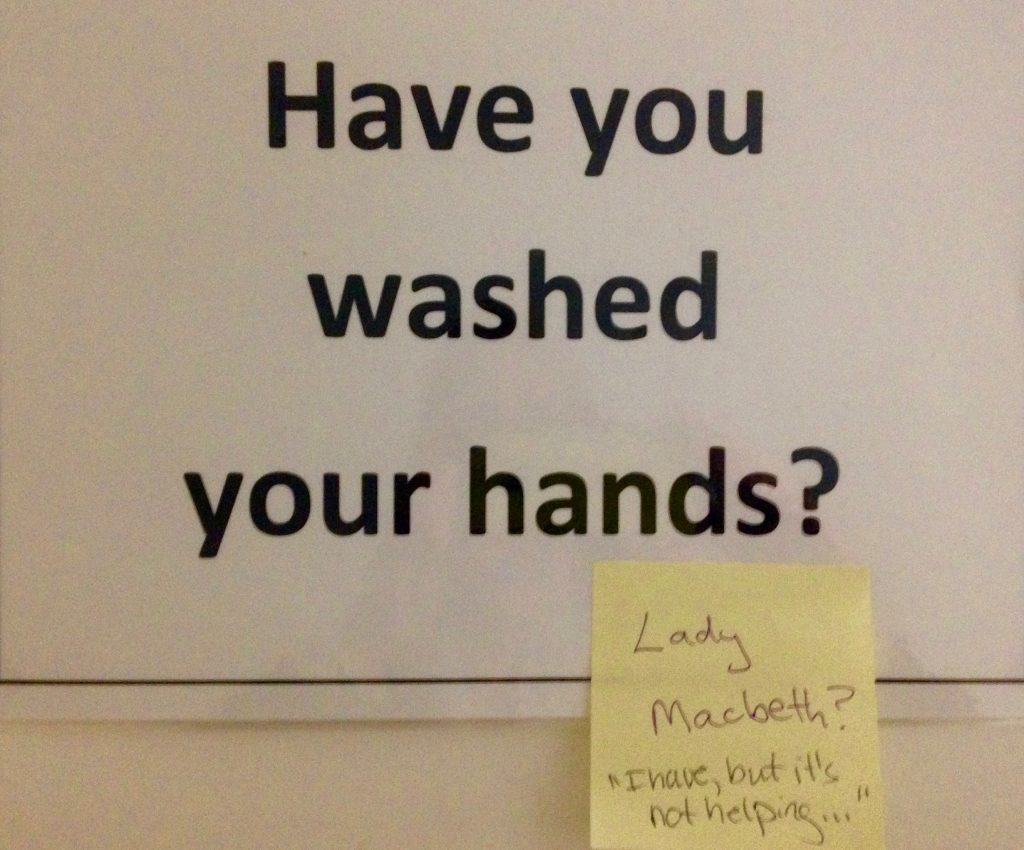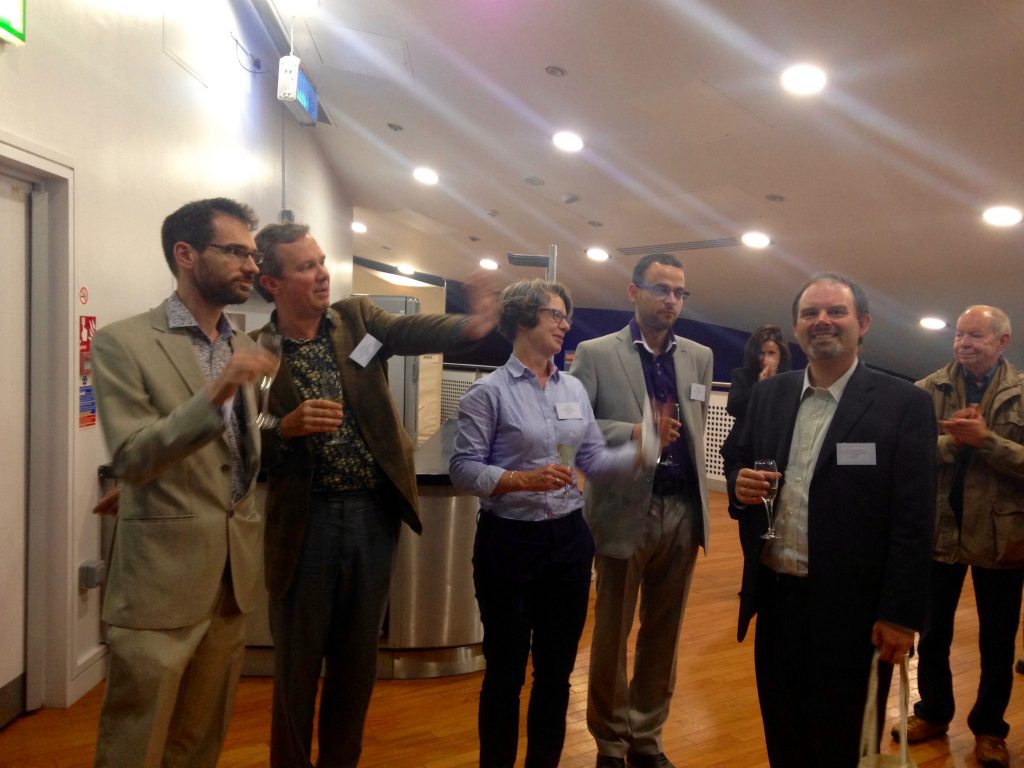BSA Bulletin for January and February 2017
6th February 2017
Announcing the annual conferences for 2018, 2019, and 2020
After a rigorous process of application and review, the Events Committee of the BSA is proud to announce the institutions that will host our three upcoming annual conferences and their titles. The 2018 BSA Annual Conference, Shakespeare Studies Today, will take place at Queen’s University Belfast on 14-17 June. Swansea Universitywill host the 2019 conference Shakespeare: Race and Nation, while the 2020 conference Shakespeare in Action will take place at the University of Surrey. We would like to thank all three institutions for the hard work they have invested in their applications, and we look forward to visiting Belfast, Swansea, and Surrey in due course. The Belfast and Swansea BSA conferences will be the first ones to take place in Northern Ireland and in Wales, respectively, which is enormously exciting, as the BSA will have visited all four constituent nations of the United Kingdom by the end of 2019. The Events Committee now invites initial expressions of interest in hosting the 2021 Conference. The Conference Proposal Form can be found on the BSA website http ://www . britishshakespeare . ws/conference/ Full information on the upcoming conferences can be found on: www . britishshakespeare . ws/bsa-conferences-for-2018-2019-and-2020
BSA Summer School for Schoolteachers, The Shakespeare Centre, Stratford-upon-Avon, 3-5 August 2017
The Association and the Shakespeare Birthplace Trust are co-organising the first BSA Summer School for Schoolteachers, coordinated by Chris Green (BSA Teaching Trustee) and Nick Walton (SBT Education). The event will be aimed at both English and Drama teachers (from both the Primary and Secondary sectors). The price will be £177 (tbc), and will include tickets to see the Royal Shakespeare Company new productions of Julius Caesarand Antony and Cleopatra, as well as a series of sessions with members of the RSC casts, professional directors, and scholars from the Shakespeare Institute and the Shakespeare Birthplace Trust. More details about the programme and the booking process will be announced soon. For expressions of interest and other enquiries, please contact Chris Green: cejgreen@hotmail.com
BSA Panels, ‘Shared Futures’, English Association and University English Conference, Newcastle 5-7 July 2017
The BSA invites members—teachers, theatre practitioners, enthusiasts, academics—to participate in a series of three Shakespeare panels we will be running at the Shared Futures conference in Newcastle next summer: ‘Why Shakespeare now?’ (Chair Susan Anderson); Panel 2 ‘Sharing Shakespeare’s Language (workshop chaired by Alison Findlay, Andrew Jarvis and James Harrison-Smith) and Panel 3: Sharing Futures across primary, secondary and university education (Chairs: Chris Green and Karen Eckersal). Further details can be found on the BSA website. The BSA has a number to Bursaries to award to members (especially teachers and theatre practitioners) who wish to contribute to the panels / workshop above and are not in receipt of funding from their institution. For further details please contact Susan Anderson S.Anderson@leedstrinity.ac.uk For more information about the panels see http ://www . britishshakespeare . ws/join-our-panels-at-the-shared-futures-conference/ Registration for English: Shared Futures is now open!. You can find the registration form by clicking the booking tab at the top of the conference’s home page at http ://www . englishsharedfutures . uk Early bird rates are available until 30 April, and a limited number of fee-only bursaries for the low- and un-waged is available. The deadline to apply for those is 15 March.
BSA funding available for conference, events, and other activities
The BSA is able to award small amounts of money to Shakespeare-related education events, academic conferences and other activities taking place in the UK. For more information or to apply for funding, please email the Chair of the Events Committee, Susan Anderson (S.Anderson@leedstrinity.ac.uk) or the Chair of the Education Committee, Sarah Olive (sarah.olive@york.ac.uk).
Teaching Shakespeare 11 out this month!
Teaching Shakespeare 11 will be published this month. Apart from the usual selection of articles for educators and students in all sectors, don’t miss our competition…compete with prizes! We have three copies of the gorgeous publication Colouring Shakespeare with a foreword by Simon Callow to give away to readers. Given that we’re now into double figures in terms of issues, we’re inviting readers to take 10 minutes to answer a short online survey about the magazine to make it even stronger as we go forward: http ://surveymonkey . co . uk/r/JRDLVHL With huge thanks in advance from the Education Committee.
CALLS FOR PAPERS
CFP: Hamlet and Emotions: Then and Now, University of Western Australia, 10-11 April 2017
Ian McEwan’s recent novel Nutshell (2016), in which Hamlet is an unborn foetus, is only the latest in a line of appropriations of Shakespeare’s plays stretching back to 1600. Hamlet itself stretches beyond the seventeenth century, drawing on sources that date back to twelfth-century Denmark, and referring within itself to relics of older drama that Shakespeare may have seen as a boy in Stratford. Hamlet looks both backwards and forwards in time. The play also covers a remarkable range of emotional states, including anger, love, hatred, grief, melancholy and despair. Indeed, Hamlet stages a plethora of emotional practices: a funeral and a marriage, a vindictive ghost in purgatory, a young woman whose mental equilibrium has been dislodged by the murder of her father by her own erstwhile lover, an inscrutable monarch under suspicion of murder, a couple of mordantly cheerful gravediggers, and a young prince back from university and grieving for his deceased father. This symposium invites new readings of the play, focusing on any aspect of its emotional life in the widest sense. We envisage papers from a range of disciplines and points of view, which may contribute to any of the Centre’s four research programs – Meanings, Change, Performance or Shaping the Modern. Some possible areas of discussion are mentioned below, but they are by no means exclusive. We aim at producing a book proposal, so completed papers ready for publication will save time when approaching a publisher. International visitors include Kevin Curran (University of Lausanne), Richard Meek (University of Hull), Kathryn Prince (University of Ottawa), and Naya Tsentourou (University of Exeter) More information on: http ://www . historyofemotions . org . au/events/hamlet-and-emotions-then-and-now/ Please send proposals for 20-minute papers, including a title and presenter details, to Paul Megna (paul.megna.uwa.edu.au) by 28 February 2017.
CFP: Offensive Shakespeare conference, Northumbria University, Newcastle-upon-Tyne, 24th May 2017
This conference is sponsored by the BSA. Keynote speakers include Professor Douglas Lanier (University of New Hampshire) and Dr Peter Kirwan (University of Nottingham). ‘Outrage as BBC bosses “use Shakespeare to push pro-immigration agenda”’. This was a headline in The Daily Express on 25th April 2016, after the BBC included what has become known as the ‘Immigration Speech’ from Sir Thomas More in a programme celebrating the 400th anniversary of Shakespeare’s death. From Thomas and Henrietta Bowdler expurgating passages from their Family Shakespeare, through campaigns in the early 20th century to remove The Merchant of Venice from American classrooms, to this recent ‘outrage’, people have been offended by what Shakespeare wrote or by the uses to which others have put him. But what is it that offends us and how do we deal with it? What makes Shakespeare and his appropriations such a sensitive issue? Full details on abstract submission are available here: http ://www . britishshakespeare . ws/cfp-offensive-shakespeare/
CFP: Shakespeare, Technology, Media, Performance, University of Exeter, 24 June 2017
This conference will examine the recent significant changes in how Shakespeare’s plays are performed and disseminated through old and new technologies and media. At one end of the spectrum, through performances in reconstructed early modern theatres, early modern performance technologies have re-entered mainstream culture. The Sam Wanamaker Playhouse is only the most recent example of how early modern technologies and the plays written by Shakespeare’s contemporaries and successors have returned to the cutting edge of present-day theatre. At the other end of the spectrum, the current production of The Tempest by the RSC in partnership with Intel exemplifies how mainstream theatre companies have, in the wake of productions by smaller companies experimenting with digital and virtual theatre, embraced digital media. Full information on: http ://www . britishshakespeare . ws/cfp-shakespeare-technology-media-performance/
This conference is organised and sponsored by Shakespeare Bulletin to mark the end of Pascale Aebischer’s term as General Editor of the journal. Keynote speakers include Courtney Lehmann (University of the Pacific), Ramona Wray (Queen’s University Belfast), and Pascale Aebischer (University of Exeter).
We call for papers on any of the following or related topics in relation to the performance of Shakespeare and/or early modern drama:
– reimagined performance technologies in reconstructed playhouses and Practice-as-Research
– intermedial performance practices
– social media performance
– theatre broadcast technology and spectatorship
– television and feature film adaptation
– digital objects and digital media
– technology of the classroom
Paper proposals of up to 300 words, accompanied by a short biographical statement, should be submitted to Emma Bessent (E.Bessent@exeter.ac.uk) by Monday 27 February. Up to 6 postgraduate bursaries covering the conference attendance fee plus a standard contribution of £50 to assist with travel expenses are available to encourage contributions to the debate by a new generation of scholars. Please specify in your proposal if you wish to apply for one of these. Early submissions will be preferred.
CFP: Humour, History, and Methodology: A Multidisciplinary and Trans-Professional Enquiry, Durham University, 26-28 July 2017
The Humours of the Past (HOP) Network brings together researchers and practitioners with a mutual stake in understanding, interpreting and communicating humour of various kinds from particular times and cultural contexts. The study of humour as an approach to history – and history as an approach to humour – is a developing area of enquiry. However, there has been relatively little cross-disciplinary reflection on the methods researchers use to identify and understand humour from the past, and on what may be similar across disparate cultural materials. Furthermore, academic researchers have had only limited opportunities to discuss their modes of enquiry with practitioners who also have a professional stake in interpreting humour from the past, such as actors, directors, curators, and translators. To this end, HOP is holding a conference at Durham University, 26-28 July 2017 to encourage researchers and practitioners to share approaches. In addition to individual papers, there will be three roundtable discussions, exploring the verbal, visual and performative ‘translation’ of historical humour to contemporary audiences. Keynote speakers include Em. Prof. Conal Condren (UNSW), Mr Phil Porter (playwright), and Prof. Indira Ghose (Fribourg). Full information on welcome topics on: https://humoursofthepast . wordpress . com/Please submit abstracts (300 words max) to humoursofthepast@gmail.com by 1 March 2017. We particularly welcome submissions of coherent panels of 3 linked papers. Follow us on Twitter @historichumour. Organisers: Daniel Derrin (Durham University) and Hannah Burrows (University of Aberdeen)
CFP: Cahiers Shakespeare en devenir (2017): Shakespeare and Africa
This issue would like to explore the relationship between Elizabethan and Jacobean drama, that of Shakespeare but also his contemporaries, and the representation of Africa, or, from a contextual viewpoint, the perception of the African continent in early modern England. The issue will also discuss 19th-21st c. re-writings, appropriations and adaptations of Shakespeare by African and African-American writers, stage directors and film directors. Full details and guidelines are available here: http ://www . britishshakespeare . ws/shakespeare-in-africa/
MEMBERS’ NEWS AND EVENTS
We are pleased to advertise news and activities by our members and other Shakespeare associations. If you would like to advertise a Shakespeare-related activity, please email our Membership Officer, José A. Pérez Díez, at J.A.PerezDiez@leeds.ac.uk. Items below are not affiliated with or endorsed by the BSA – please use individual contact details for more information.
Sidelights on Shakespeare. ‘Shakespeare in Performance’: “Every man look o’er his part. For the short and the long is, our play is preferred”, 25 February 2017, Humanities Studio, University of Warwick
This year we have transformed Sidelights on Shakespeare. On Saturday 25th February 2017 we will be holding a one-day event under the broad title of ‘Shakespeare in Performance’. Sponsored by the Humanities Research Centre, we will be bringing together respected academics and post-graduate researchers to celebrate the current work being done in the field of Shakespeare in performance. Confirmed Speakers include Dr Jaq Bessell (Director of Studies, Guildford School of Acting), Professor Tony Howard and Dr Steve Purcell (University of Warwick), and Tim Supple (Artistic Director, Dash Arts). The event is free and includes refreshments, though are asking you to register as numbers will be limited. Booking is now open and delegate places proving very popular. For further information please email Stephanie on S.A.Tillotson@warwick.ac.uk or visit the Humanities Research Centre website at: http ://www2 . warwick . ac . uk/fac/arts/hrc/seminars/sos/
“Why Does Cardenio Matter?”: A talk by Gary Taylor at the Richmond Shakespeare Society, Mary Wallace Theatre, Twickenham, 15 March 2017, 7:45pm.
Professor Gary Taylor talks about the lost Shakespeare-and-Fletcher play The History of Cardenio: what we know about it: how we know it: and why does it matter? If you’re interested in Shakespeare or theatre in general, or the Renaissance in England and Spain, take this rare opportunity to hear one of the world’s leading Shakespearean scholars speaking in the UK. He will describe his own long scholarly investigation, the creation of his reconstruction and the theatrical collaborations that have tested and refined it. And his talk serves as prologue to the UK premiere of his reconstruction, opening at the Mary Wallace Theatre the following Saturday. The talk will be free but ticketed; please visit this link: http ://www . richmondshakespeare . org . uk/index . php/news/article/why_does_cardenio_matter/
The History of Cardenio by William Shakespeare, John Fletcher, and Gary Taylor, Richmond Shakespeare Society, Mary Wallace Theatre, Twickenham, 18-25 March 2017, 7:45pm.
The UK premiere of the most authentic vision of the lost Shakespeare play The History of Cardenio. Leading scholar Gary Taylor has made a lively, credible, theatrically viable reconstruction of Shakespeare and Fletcher’s 1612 play. Cardenio loves Lucinda. When he tells his friend Fernando about her, Fernando loves Lucinda too. But Fernando is already as good as married to Violante, a farmer’s daughter. So, to marry Lucinda, Fernando must be doubly false and betray the two people who are dearest to him. One will come close to death, another will go mad. Quesada, the old schoolmaster, has read too many stories of chivalry and determines to become a wandering knight. With his houseboy, Sancho, as his squire, he takes to the road to kill dragons and save damsels. There will be confrontations and absolutions but will everyone come out happy? Will everyone come out sane? RSS and Cutpurse present the British premiere of the most authentic vision of the lost play. One of the world’s leading Shakespeare scholars, Gary Taylor, collaborates posthumously with Shakespeare and Fletcher to re-create their adaptation of Don Quixote in a script that’s passionate, romantic and immensely funny. More information and bookings: http ://www . richmondshakespeare . org . uk/index . php/productions/production/the_history_of_cardenio/# . WJCwJE1XV3c
After Shakespeare play readings, Birmingham.
After Shakespeare holds weekly drop-in Shakespeare play readings at the Birmingham & Midland Institute in the centre of Birmingham (Tuesdays, 6.30-9.00pm), where around 15 people meet to read, discuss, and generally enjoy Shakespeare’s plays. We are currently reading our 6th Shakespeare play, Henry IV Part 1, anyone interested is welcome to come along; please drop Frank Bramwell an email at aftershakespeareuk@gmail.com. After Shakespeare also holds workshops aimed at increasing enjoyment of Shakespeare, as well as writing and performing new plays inspired by the work of William Shakespeare. Details of all our activities can be found at www . aftershakespeare . co . uk




 papers
papers



